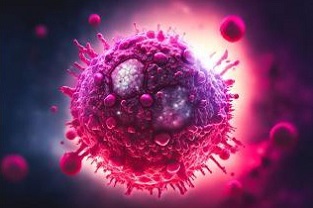Nikhil Prasad Fact checked by:Thailand Medical News Team Jun 12, 2024 10 months, 1 week, 6 days, 21 hours, 45 minutes ago
Medical News: In recent years, an intriguing hypothesis has emerged in the field of oncology: the possibility that the Mouse Mammary Tumour Virus (MMTV) might play a causal role in human breast cancer. This hypothesis is supported by new evidence, which has been meticulously reviewed using an extended version of the classic A. Bradford Hill causal criteria. This
Medical News report covers the findings by Italian researchers and their implications.
 Mammary Tumour Virus (MMTV) Linked to Human Breast Cancer
Discovery and Identification of MMTV
Mammary Tumour Virus (MMTV) Linked to Human Breast Cancer
Discovery and Identification of MMTV
MMTV is a betaretrovirus historically known for causing breast cancer in mice. The virus's genome has been identified in human breast cancer cells, showing up to 98% similarity to MMTV in mice. In a landmark discovery, the complete MMTV nucleotide sequence was found in human breast cancers, showing remarkable homology to the mouse virus. Moreover, the virus's presence has been confirmed in human breast cancer tissues in 19 different countries, demonstrating a global prevalence.
The Epidemiological Connection
The prevalence of MMTV in human breast cancer varies geographically, with about 35-40% in Western countries and 15-20% in China and Japan. This suggests environmental and lifestyle factors might influence the virus’s spread and its association with breast cancer. Studies have shown that MMTV is more common in areas where MMTV-infected mice are prevalent. For instance, in China, higher rates of MMTV-positive breast cancers are found in regions where the Mus domesticus mouse, a known carrier of the virus, is common.
Strength of Association
The consistent identification of MMTV in a significant proportion of human breast cancer cases across various studies underlines a strong association. This is further supported by serological evidence, where antibodies against MMTV are found more frequently in breast cancer patients compared to healthy individuals. The association is so strong that MMTV sequences have been detected in breast tissue years before cancer develops in the same tissue.
Experimental Evidence and Oncogenic Mechanisms
Experimental evidence shows that MMTV can infect human breast cells in culture, integrating its genome into human DNA. Proteins expressed by the virus's envelope gene are capable of transforming normal breast cells into malignant ones. While the exact mechanisms by which MMTV causes cancer in humans are not entirely understood, it is hypothesized that the virus's interaction with the enzyme APOBEC3B might play a crucial role. APOBEC3B is known to induce mutations that could lead to cancer development.
Transmission and Biological Plausibility
The transmission of MMTV to humans is thought to occur through various means, including contaminated food and direct contact with infected animals. The presence of the virus in human milk and sputum suggests these as possible routes of transmission. The biological plausi
bility of MMTV causing cancer is supported by the fact that other retroviruses, such as HIV and HTLV-1, are established causes of human cancers.
Alternative Opinions and Challenges
Despite the compelling evidence, some researchers remain skeptical about MMTV’s role in human breast cancer. Critics argue that the low viral load found in human tissues challenges the virus's ability to cause cancer. However, recent studies using advanced sequencing techniques have identified MMTV-like sequences in breast cancer tissues, supporting the hypothesis of viral involvement.
Conclusion
The extended Bradford Hill criteria applied in this review strongly support the hypothesis that MMTV plays a causal role in a subset of human breast cancers. This discovery opens new avenues for research into breast cancer’s etiology and potential preventive measures, including the development of vaccines against MMTV.
The study findings were published in the peer reviewed journal: Viruses.
https://www.mdpi.com/1999-4915/14/4/721
For the latest on Breast Cancer, keep on logging to Thailand
Medical News.
Read Also:
https://www.thailandmedical.news/news/medical-news-scientist-discover-more-than-921-carcinogenic-chemicals-in-consumer-goods-and-in-the-environment-that-can-cause-breast-cancer
https://www.thailandmedical.news/news/covid-19-s-effect-on-breast-cancer-cells
https://www.thailandmedical.news/news/breaking-new-study-shows-even-progestin-only-birth-control-pills-or-patches-increase-risk-of-breast-cancer
